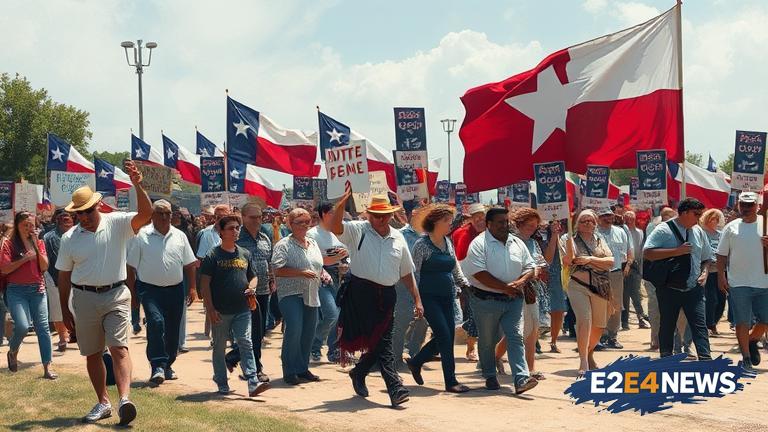In July 2021, a group of Texas Democratic lawmakers made a dramatic decision to leave the state in an effort to prevent the passage of voting restriction bills. The move was seen as a last-ditch effort to block the Republican-led legislature from enacting laws that would limit voting access, particularly for marginalized communities. The Democrats’ exodus was sparked by the introduction of two bills, SB 1 and HB 3, which aimed to impose stricter voter ID requirements, limit early voting, and restrict mail-in voting. The lawmakers argued that these bills would disproportionately affect people of color, low-income individuals, and the elderly, and would undermine the democratic process. By fleeing the state, the Democrats hoped to deny the Republican majority a quorum, thereby preventing the bills from being passed. The move was met with widespread criticism from Republicans, who accused the Democrats of abandoning their duties and disrupting the legislative process. However, the Democrats maintained that their actions were necessary to protect the rights of Texas voters and to draw attention to the issue of voting restrictions. The standoff between the Democrats and Republicans lasted for several weeks, with the Democrats remaining in Washington, D.C. and refusing to return to Texas. During this time, the Democrats met with federal lawmakers and advocacy groups, pushing for national legislation to protect voting rights. The situation drew national attention, with many seeing it as a symbol of the broader struggle for voting rights and democracy in the United States. The Texas Democrats’ actions were praised by many civil rights organizations and voting rights advocates, who saw it as a courageous stand against voter suppression. However, others criticized the move as a publicity stunt, arguing that it would ultimately be ineffective in blocking the passage of the bills. Despite the criticism, the Democrats remained resolute, arguing that their actions were necessary to bring attention to the issue and to mobilize public support for voting rights. The standoff eventually ended when the Democrats returned to Texas, but not before they had sparked a national conversation about voting rights and democracy. The incident highlighted the deepening partisan divide in the United States, with many seeing it as a reflection of the broader struggle for power and control. The Texas Democrats’ actions also drew attention to the issue of voter suppression, with many arguing that the bills were designed to limit the voting power of marginalized communities. The incident sparked a wave of protests and rallies across the state, with many Texans expressing their opposition to the voting restriction bills. The Democrats’ move also prompted a response from the Biden administration, with the President and other federal officials weighing in on the issue. The incident ultimately ended with the passage of the voting restriction bills, but the Texas Democrats’ actions had sparked a national conversation about voting rights and democracy. The move had also galvanized public support for voting rights, with many seeing it as a call to action to protect the democratic process. In the end, the Texas Democrats’ decision to flee the state had sparked a national debate about the importance of voting rights and the need to protect democracy. The incident would be remembered as a pivotal moment in the struggle for voting rights, and would serve as a reminder of the importance of standing up for democratic values. The Texas Democrats’ actions had shown that even in the face of overwhelming opposition, courage and determination could bring attention to important issues and mobilize public support. The incident would also serve as a reminder of the need for continued vigilance and activism in the face of efforts to undermine democracy and limit voting rights.
